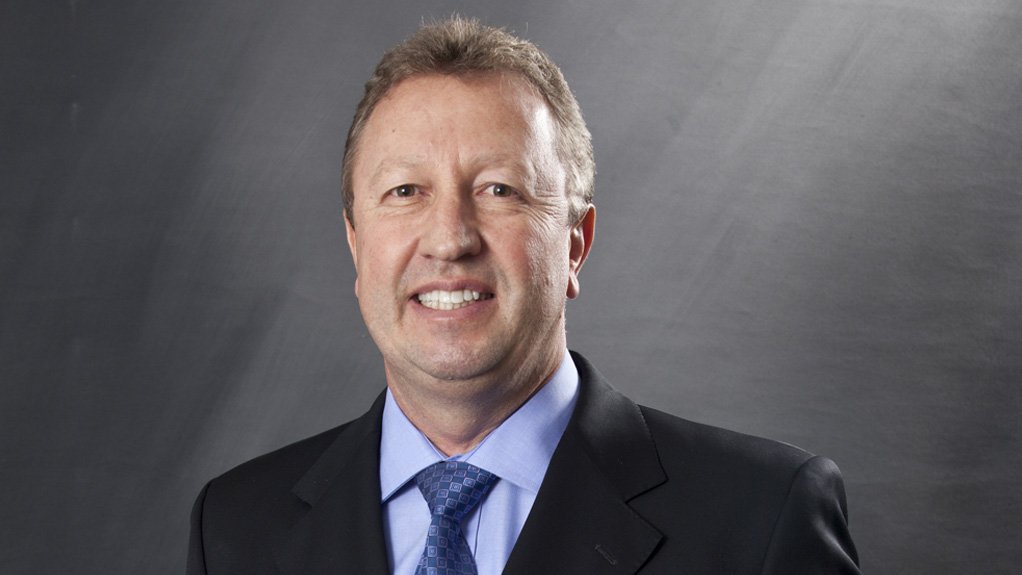Several Green trends expected to emerge this year


VICTOR BOUGUENON Trends include South Africa’s property and construction players committing to greener practices
As the green-building groundswell takes hold globally, construction materials supplier AfriSam says industry can expect to several trends emerge this year.
These trends, AfriSam marketing manager Victor Bouguenon says, include South Africa’s property and construction players committing to greener practices, as well as project managers developing regenerative and integrated process skills.
“Another of these trends is using standardised green rating tools – such as the Leadership in Energy and Environmental Design (LEAD) system, which was devised by the United States Green Building Council, as well as the Green Building Council of South Africa’s (GBCSA’s) certification, which is based on the Australian system – to evaluate the environmental performance of a building and encourage market transformation towards sustainable design,” he explains, adding that these trends are being adopted and providing momentum in the ‘sustainability’ debate.
These trends, however, started slowly, which can be seen when comparing the GBCSA’s certified projects with those of the Australian adoption trajectory, with a lag of roughly six years, Bouguenon adds, noting that the GBCSA had 28 projects certified in South Africa by 2012.
About 2 500 projects are expected to be certified by 2020.
“Green building is an adoption process and people need to understand what it is about, as well as what role they are required to play,” Bouguenon further notes, explaining that hesitation to participate in the industry might be because of the perceived financial costs involved.
To curb hesitation, AfriSam’s composite cement products – such as the AfriSam Eco Building Cement and Eco Readymix – have been specially engineered to extract the maximum value from using mineral components together with pure cement to achieve outstanding performance and a significantly lower carbon footprint.
“AfriSam’s knowledge of composite cements and the use of admixtures continues to give us a competitive edge, technically and commercially, as the carbon footprint of our Eco products has been halved compared with ordinary Portland cement, depending on the strength requirement,” Bouguenon enthuses.
He adds that when using AfriSam’s Advanced Composite C-Tech technology, AfriSam products offer eight advantages over pure cements: an improved workability to allow for a naturally workable mix using less water; reduced heat of hydration to minimise thermal cracking; reduced susceptibility to chemical attacks to limit attacks to steel rebar; reduced permeability, thereby improving the corrosion resistance of steel rebar; increased erosion resistance to minimise the impact of water penetration; their continued strength gain over time to create a more durable concrete; increased durability from the combined benefits; and a low carbon footprint.
Meanwhile, Bouguenon further explains that the cement industry is responsible for about 5% of the global greenhouse gases released into the atmosphere as a consequence of the nature of the production process.
He enthuses that AfriSam was the first in the industry to introduce a carbon footprint measurement system in 2009, which indicated the carbon footprint of each cement product at every plant relative to ordinary Portland cement.
Owing to this, Bouguenon believes that AfriSam was arguably the world’s first construction materials supplier to measure the carbon footprint of all its production operations, including cement, aggregate and readymix.
“To move forward with this initiative and, in line with the cement industry’s responsibility, AfriSam is lobbying The Construction Institute to encourage all producer members to adopt a common system that promotes the good name of cement and concrete,” he adds.
Bouguenon concludes that this will give the initiative the encouragement that it needs and provide the industry with ‘much needed’ credibility.
Article Enquiry
Email Article
Save Article
Feedback
To advertise email advertising@creamermedia.co.za or click here
Announcements
What's On
Subscribe to improve your user experience...
Option 1 (equivalent of R125 a month):
Receive a weekly copy of Creamer Media's Engineering News & Mining Weekly magazine
(print copy for those in South Africa and e-magazine for those outside of South Africa)
Receive daily email newsletters
Access to full search results
Access archive of magazine back copies
Access to Projects in Progress
Access to ONE Research Report of your choice in PDF format
Option 2 (equivalent of R375 a month):
All benefits from Option 1
PLUS
Access to Creamer Media's Research Channel Africa for ALL Research Reports, in PDF format, on various industrial and mining sectors
including Electricity; Water; Energy Transition; Hydrogen; Roads, Rail and Ports; Coal; Gold; Platinum; Battery Metals; etc.
Already a subscriber?
Forgotten your password?
Receive weekly copy of Creamer Media's Engineering News & Mining Weekly magazine (print copy for those in South Africa and e-magazine for those outside of South Africa)
➕
Recieve daily email newsletters
➕
Access to full search results
➕
Access archive of magazine back copies
➕
Access to Projects in Progress
➕
Access to ONE Research Report of your choice in PDF format
RESEARCH CHANNEL AFRICA
R4500 (equivalent of R375 a month)
SUBSCRIBEAll benefits from Option 1
➕
Access to Creamer Media's Research Channel Africa for ALL Research Reports on various industrial and mining sectors, in PDF format, including on:
Electricity
➕
Water
➕
Energy Transition
➕
Hydrogen
➕
Roads, Rail and Ports
➕
Coal
➕
Gold
➕
Platinum
➕
Battery Metals
➕
etc.
Receive all benefits from Option 1 or Option 2 delivered to numerous people at your company
➕
Multiple User names and Passwords for simultaneous log-ins
➕
Intranet integration access to all in your organisation
















